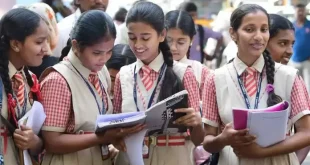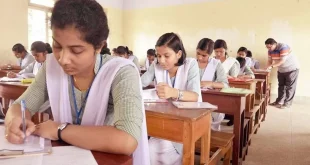
CTET July 2024 Registration Portal Now it is for the candidates; Candidates who want to become a teacher can apply for this competitive examination. Central Board of Secondary Education (CBSE) Organized by, ctet application Last date of submission is April 02, 2024 , Central Teacher Eligibility Test While registering for , a student has to upload photo and signature within the given limit.
As per the CBSE Affiliation Bye-Laws, prescribing minimum qualifications for teachers to teach various subjects in Classes I to VIII in CBSE affiliated schools, have been modified to that extent and it will be mandatory for teachers appointed thereafter i.e. from 6th March, 2012 Teacher candidates teaching classes I to VIII in CBSE affiliated schools must have passed/appeared in the Central Teacher Eligibility Test or Teacher Eligibility Test (TET) conducted by the appropriate Central/State Government as per the guidelines made by NCTE for this purpose. Now let's talk about CTET exam pattern.
If you are appearing for the first time then you should know how CTET is conducted. Central Teacher Eligibility Test There will be two papers for. If you want to become a teacher for class I to V, you have to appear in Paper I only. But if you intend to become a teacher for classes VI to VIII, you have to appear in Paper II. A person who intends to become a teacher for both the levels (Class I to V and Class VI to VIII) has to appear in both the papers (Paper I and Paper II).
The questions in the Paper I test will be based on the topics prescribed in the NCERT syllabus for Class IV, but their difficulty standard, as well as the linkage, can be up to the secondary level. The questions in the test for Paper II will be based on the topics prescribed in the NCERT syllabus for classes VI-VIII, but their difficulty standard, as well as linkages, can be up to the Senior Secondary level. The main question paper will be bilingual (Hindi/English).
Child Development and Pedagogy 30 Questions
Paper I (For Class 1 to V) Primary Stage 15 Questions
Child Development and Pedagogy 30 Questions a) Child Development (Primary School Children) 15 Questions• Concept of development and its relation with learning.
- principles of child development
- Influence of heredity and environment • Socialization processes: the social world and the child (teachers, parents, peers)
- Piaget, Kohlberg and Vygotsky: Constructive and Critical Perspectives
- Concepts of child-centred and progressive education
- Critical Perspective on the Creation of Intelligence
- multidimensional intelligence
- language and thought
- Gender as a social construct; Gender roles, gender-bias and educational practice.
- Understanding differences among learners based on individual differences, diversity of language, caste, gender, community, religion etc.
- Difference between assessment for learning and assessment of learning; School Based Assessment, Continuous and Comprehensive Assessment: Perspectives and Practices
- Formulating appropriate questions to assess the level of preparation of learners; To enhance learning and critical thinking in the classroom and to assess learner achievement.
b) Understanding the concept of inclusive education and children with special needs 5 questions
- Addressing learners from diverse backgrounds, including the underprivileged and disadvantaged
- Addressing the needs of children with learning difficulties, “disadvantages” etc.
- Addressing talented, creative, specially able learners
c) Learning and Pedagogy 10 questions
- How children think and learn; How and why children “fail” to achieve school performance.
- Basic processes of teaching and learning; Children's learning strategies; Learning as antisocial activity; Social context of learning.
- The child as a problem solver and “scientific explorer”
- Alternative conceptions of learning in children, understanding children's “errors” as important steps in the learning process.
- feeling and emotions
- inspiration and learning
- Factors contributing to learning – personal and environmental
II Mathematics 30 Questions
a) Content 15 questions
- geometry
- shape and spatial understanding
- solid all around us
- Number
- addition and subtraction
- multiply
- Division
- measurement
- weight
- Time
- volume
- data handling
- patterns
- Wealth
The Central Board of Secondary Education will conduct the 19th edition of the Central Teacher Eligibility Test (CTET) on July 7. The exam will be conducted in twenty languages in 136 cities across the country. Detailed information bulletin containing details of examination, syllabus, language, eligibility criteria, examination fee, examination city and important dates is available on the official website of CTET https://ctet.nic.in/.
 look news india
look news india

